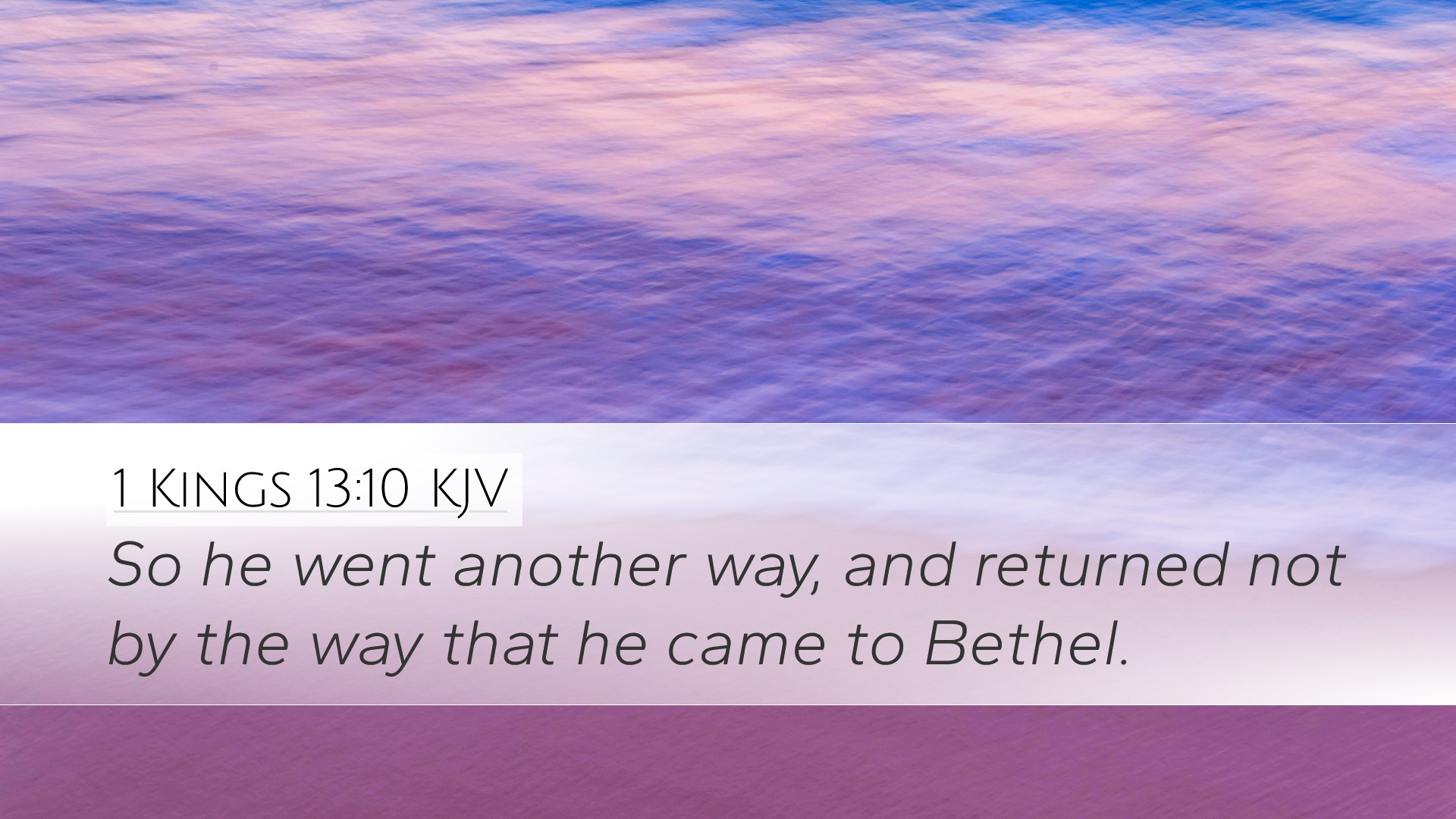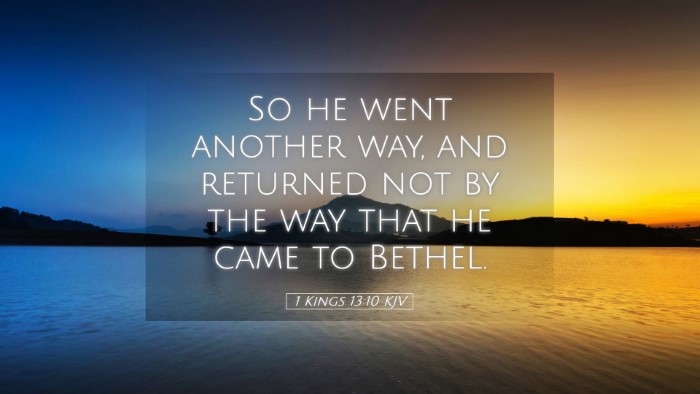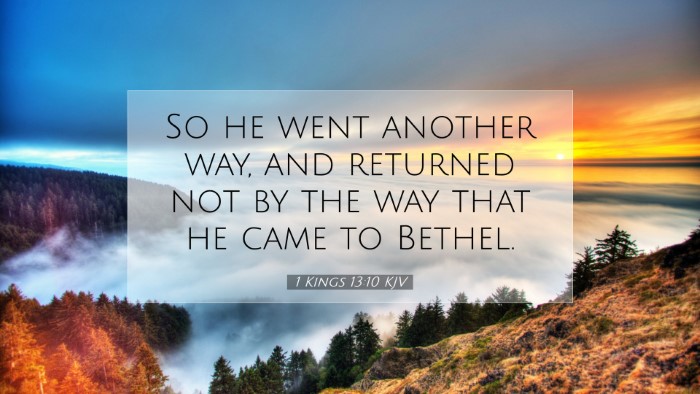Commentary on 1 Kings 13:10
Verse Text: "So he went another way, and returned not by the way that he came to Bethel." (1 Kings 13:10)
Introduction
This verse marks a pivotal point in the narrative of the man of God from Judah, illustrating themes of obedience, divine command, and the consequences of one's actions. The entire chapter recounts a significant encounter that the prophet has with King Jeroboam and the implications of following God's directions faithfully.
Contextual Background
The events in 1 Kings 13 occur in a time of great spiritual decline in Israel. King Jeroboam, having established a new system of worship in Northern Israel, had caused the people to stray from proper worship of Yahweh. Into this context, a man of God is sent from Judah to deliver a prophetic message, highlighting the critical nature of his mission.
Commentary Insights
1. The Path of Obedience: According to Matthew Henry, the choice of the prophet to return another way signifies his immediate obedience to God's command, showcasing an essential principle that spiritual leaders must be attuned to obey God's voice. This act illustrates a departure from the familiar, emphasizing a willingness to heed divine guidance even when it requires alteration from one's previous path.
2. Symbolism of the Journey: Albert Barnes draws attention to the symbolic meaning of the journey. The act of not returning along the same path is representative of a transformation that occurs when one encounters God. The man of God does not wish to leave the scene of his divine mission unchanged, signifying that an authentic encounter with the divine necessitates a change in direction.
3. Theological Significance: Adam Clarke elaborates on the theological implications of this verse, pointing out that it reflects the broader theme of God's instructions often involving significant life decisions. The man's choice to avoid the path he came by can symbolize the turning away from sin and returning to a closer relationship with God, a theme echoed throughout the Bible, particularly in the New Testament where believers are called to abandon their old ways.
4. Lessons on Discernment: The prophet's decision serves as a lesson in discerning the leading of the Holy Spirit. This theme emphasizes the need for believers to remain sensitive to God's will at all times. Henry implies that a leader must not only know the truth but must also act according to God's commands, as demonstrated by the prophet's choice to do otherwise than that upon which he first set out.
5. The Importance of Faithfulness: The commentary discusses the overarching theme of faithfulness to God's commands. As noted by Barnes, this moment showcases that faithfulness sometimes means making choices that seem strange to others but are crucial for one's spiritual integrity and obedience to God's law.
6. The Foreshadowing of Future Events: This verse also serves to foreshadow events that will unfold later in the narrative of the man of God. By choosing a different route, the prophet sets in motion a series of events that will lead to both his demise and a powerful lesson on the consequences of not adhering strictly to divine instructions.
Thematic Reflections
- Obedience to God: The primary theme embedded within this verse revolves around the power and necessity of obedience to God’s commands.
- God's Guidance: The importance of seeking and following God’s guidance in our journeys and decisions.
- Transformation: The expectation of personal transformation in response to divine encounters.
- Spiritual Discernment: The call for spiritual leaders and believers to be discerning in their actions and decisions, as they may have far-reaching implications.
Conclusion
In summary, 1 Kings 13:10 encapsulates a profound message for those who seek to walk faithfully in the ways of the Lord. The commentary from esteemed scholars and theologians highlights the necessity of obedience, the importance of discerning divine guidance, and the expectation that such experiences should lead to a change in one's spiritual journey. As believers reflect on this passage, they are called to consider their own pathways, ensuring they are led by God's commands, ultimately seeking to live lives that are reflective of His will.


